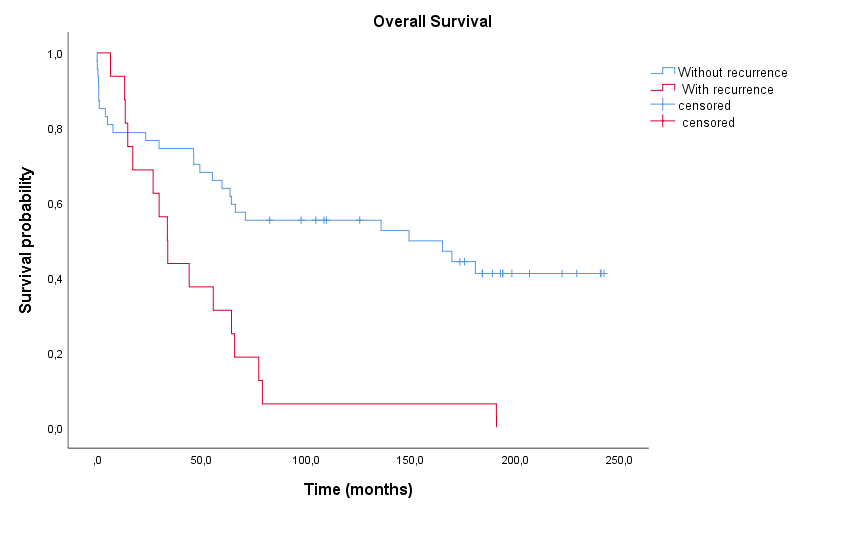Recurrence of hepatocellular carcinoma after liver transplantation: A single-center experience
Aydan Farzaliyeva1, Mehmet Nezir Ramazanoglu1, Efe Hasdemir1, Emre Karakaya2, Samed Rahatli1, Arzu Oguz1, Zafer Akcali1, Ozden Atundag1, Mehmet Haberal2.
1Medical Oncology, Baskent University, Ankara, Turkey; 2General Surgery, Baskent University, Ankara, Turkey
Introduction: Hepatocellular carcinoma (HCC) is the fourth leading cause of cancer-related mortality worldwide and almost all patients have simultaneous cirrhosis. At the same time HCC is a leading cause of death in cirrhosis. The best treatment option for patients with cirrhosis concurrent with HCC is liver transplantation (LT). İn this way, these patients are treated for both HCC and underlying liver disease. With expansion of transplantion criteria and the increase in use of LT for treatment, median survival and recurrence rates in patients with HCC also increased. İn this study we aimed to evaluate tumor recurrence characteristics of HCC after LT, treatments given and survival periods.
Materials and Methods: We retrospectively analyzed data from 512 patients who underwent LT beetween January 2000 and December 2023 at Baskent University (Ankara, Turkey).
İn our center expanded transplantation criteria are used for patients with HCC. We also evaluated survival outcomes in patient with or without reccurence.
Results: İn our center 63 out of 204 adult patients underwent transplantation due to HCC (57 men, 7 women). Median age was 55 years (min 30-max 68). İn 55%( 35 ) of the patients, HCC developed on the basis of liver cirrhosis due to HBV.Among the patients included in the study, 25 %( 16) developed recurrence after LT (15 men, 1 woman). Only 1 of the patients who developed recurrence was still alive at the time of this report. Of 16 patients 50%(8) had local and distant recurrence, 31%(5) distatnt metastasis, 19% (3) developed only local recurrence. The most frequent sites of ditant metastasis were lungs and bones. Median overall survival was 65 months for all patient groups. Median survival is significantly lower in the recurrent group than nonrecurrent group (33 vs 49 months, p=0,001). Median time to recurrence was 11,6 months. Of 63 total patients with HCC 32( 50,7%) patients underwent LT using expanded criteria developed in our center. During follow up 12,6%(8) patients developed secondary malignancy.
Conclusion: It is well known that HCC requires a multidisciplinary approach. Advances in interventional radiology, surgery and medical oncologic treatments lead to prolonged survival in HCC patients. Despite these developments HCC recurrence is still associated with poor prognosis. Management of HCC recurrence is still remains a big issue and there is not enough data and single guideline for HCC recurrence management in immunosuppressed transplant hosts.


[1] Liver transplantation
[2] recurrence of hepatocellular carcinoma
[3] immunosupressed transplant hosts
